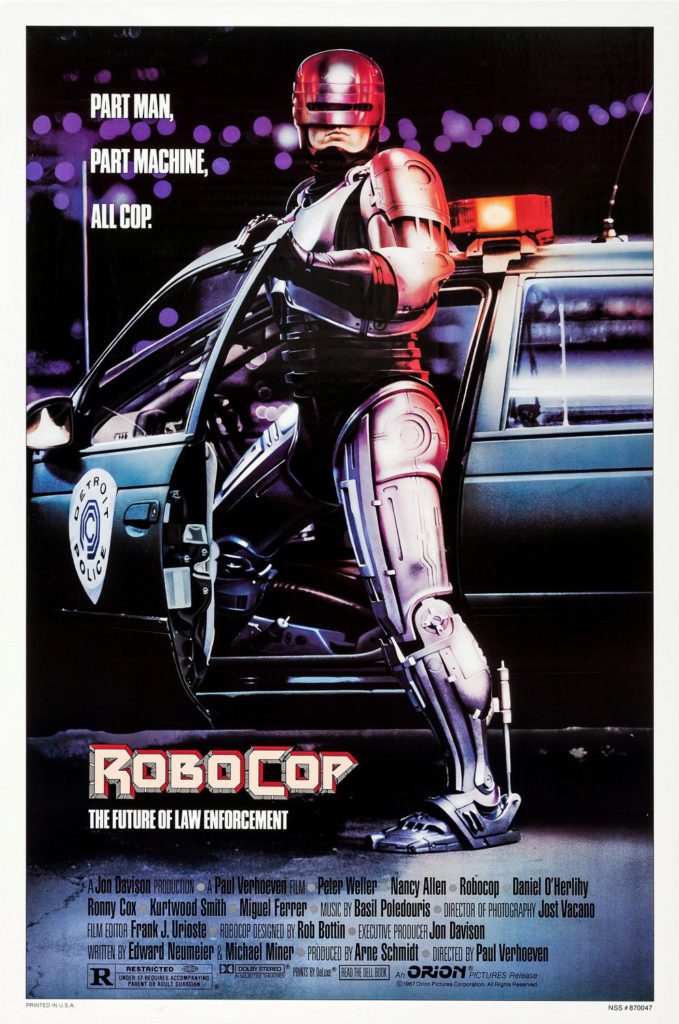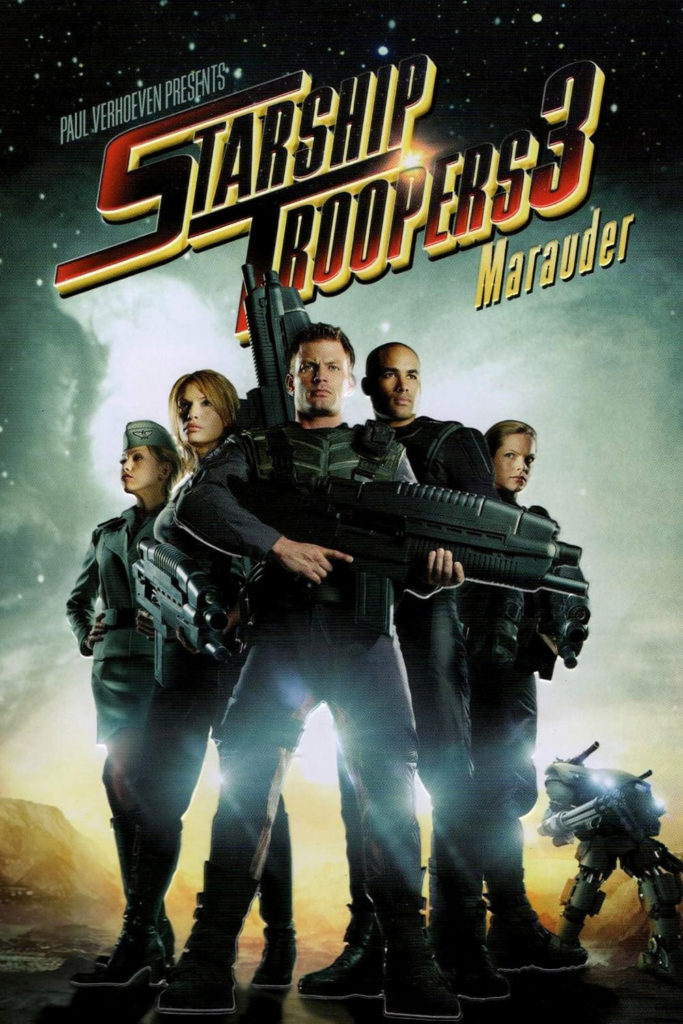For about half the film, Mikael Håfström’s 1408, based on the Stephen King short story of the same name, is creepy and frightening. By then, the viewer has grown used to Mike Enslin’s (John Cusack) predicament, and the film has no other alternative than to fall into convention. That’s unfortunate, because if Håfström had been able to sustain the atmosphere of the first half throughout the film, it would rank among the best ghost films of all time. A lot can be said for a film with potential like that. Continue reading “1408”
Tag: A Flick That’s Not Really About the Thing It’s About
Robocop (1987)
 Dystopian future societies are the stuff dreams are made of. They are what grow from the seeds of our own decadence and shallowness. The moral bankruptcy, and sometimes outright horror, of the settings of films like Blade Runner, A Clockwork Orange, THX 1138, Escape from New York, and Soylent Green wouldn’t be possible if writers and directors didn’t look around them and see the lightning speed with which we throw ourselves into unknown futures, sometimes without regard for so many of the present realities which work so well and don’t need change. The ever-present message is that change, sometimes jarring change, is inevitable. Films that look to the future warily revolve around placing the viewer in the role of Rip Van Winkle. When the theater lights dim, the familiar world of today dissolves into the freak show of tomorrow. The overriding questions always being: Why are the people onscreen comfortable with this? Why doesn’t everybody see how wrong things are?
Dystopian future societies are the stuff dreams are made of. They are what grow from the seeds of our own decadence and shallowness. The moral bankruptcy, and sometimes outright horror, of the settings of films like Blade Runner, A Clockwork Orange, THX 1138, Escape from New York, and Soylent Green wouldn’t be possible if writers and directors didn’t look around them and see the lightning speed with which we throw ourselves into unknown futures, sometimes without regard for so many of the present realities which work so well and don’t need change. The ever-present message is that change, sometimes jarring change, is inevitable. Films that look to the future warily revolve around placing the viewer in the role of Rip Van Winkle. When the theater lights dim, the familiar world of today dissolves into the freak show of tomorrow. The overriding questions always being: Why are the people onscreen comfortable with this? Why doesn’t everybody see how wrong things are?
Simply put, because that’s how things in the future work. People in the future grow up among the bizarre, things we wouldn’t recognize, as though these were the normal conditions of existence, rather than a manufactured reality that mankind has created for itself. The irony is, of course, that we, in real life, away from the fantasies of Hollywood, live like these silver screen wraiths, embracing the fast pace of technological advance, throwing off the yoke of millennia of human history to embrace the dictates of the electronic age. Implicit in films that depict the future is that civilizational advance is a given, destroying the ways and mores of the past, creating something unrecognizable to those who weren’t witness. This resonates because that is exactly how our ancestors would feel would they awake in today’s world. Continue reading “Robocop (1987)”
Starship Troopers 3: Marauder
 I’ve never met a movie I wouldn’t watch. That must be the reason I looked at this dog there in the iTunes store, staring really, wondering, was I really going to do it? Was I really going to spend $2.99 of my hard-earned cash to rent Starship Troopers 3? I wish I could write that watching my hand move the mouse and click on the ‘rent’ button was like an out of body experience, one over which I had no control. But really, I just said to myself, “Aw, fuck it. Why not?”
I’ve never met a movie I wouldn’t watch. That must be the reason I looked at this dog there in the iTunes store, staring really, wondering, was I really going to do it? Was I really going to spend $2.99 of my hard-earned cash to rent Starship Troopers 3? I wish I could write that watching my hand move the mouse and click on the ‘rent’ button was like an out of body experience, one over which I had no control. But really, I just said to myself, “Aw, fuck it. Why not?”
The first Starship Troopers seemed to have a mission to try and be everything to everyone. Big budget blockbuster, b-movie extraordinaire, sci-fi/horror bloodfest, social/political commentary, etc. It excelled as a movie, it stunk as a film. The bad acting could melt glass, the hot bodies could fire sagging libidos. It was a ridiculous film, and I have no clue how I feel about it. The first sequel was an Alien rip-off that just wanted to cash in on a name. Continue reading “Starship Troopers 3: Marauder”
They Live
After heaping backhanded praise on three John Carpenter films, never totally lauding nor completely decrying them, there is nothing ambiguous about my critique of They Live, Carpenter’s paranoid vision from 1988 of rampant consumerism and Reaganomics. It stinks. Continue reading “They Live”
